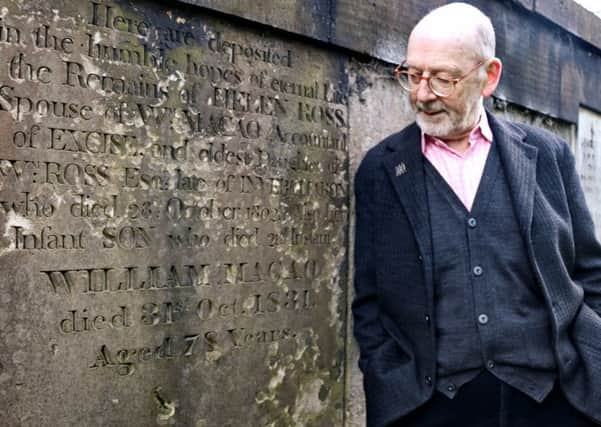Study reveals details of first Chinese citizen who became a Scotsman


Now the story of the man who arrived as a servant to a retired surgeon, became a Church of Scotland elder and a leading accountant in Edinburgh, and took centre stage in a landmark citizenship case will be told for the first time.
For nearly two years, after an initial ruling, William Macao had the distinction of being the only person to be legally deemed to be a Scotsman since the 1707 Act of Union – before it was overturned.
Advertisement
Hide AdNearly two centuries on from his death, Macao will finally be celebrated today at his final resting place in what became his home city of Edinburgh.
Historian Barclay Price, who has spent almost a year piecing together fragments of Macao’s time in Scotland for a new book, will chart the half a century he spent in the country, during which time he became a senior accountant in Scotland’s Excise Office.
The Edinburgh World Heritage trust is staging the special celebration of Macao, who is described as “the world’s first Chinese Scotsman” at St Cuthbert’s Church, at the corner of Princes Street and Lothian Road, where he is buried in the kirkyard.
Macao is believed to have accompanied surgeon David Urquhart, who worked in China with the powerful East India Company, to Scotland in 1775 to work at his Braelangwell estate in Cromarty, in the Black Isle.
Macao moved to Edinburgh in 1777 to work as a footman to neighbouring estate owner Thomas Lockhart, commissioner of the Board of Excise. By 1800 he was an accountant at its St Andrew Square headquarters and when he retired in 1826 he was in charge of its superannuation fund.
Macao became embroiled in a lengthy legal wrangle in 1819 when he became a test case over a legal loophole suggesting anyone buying stock in the Bank of Scotland could become a “naturalised Scot” – in defiance of the Act of Union.
Advertisement
Hide AdMr Price said: “I started looking into the life of William Macao when I found a mention in a book about old Edinburgh of an account that was written in 1858 about a Chinese man who had working at the Board of Excise 50 years before then.
“It is remarkable how invisible he has been.”